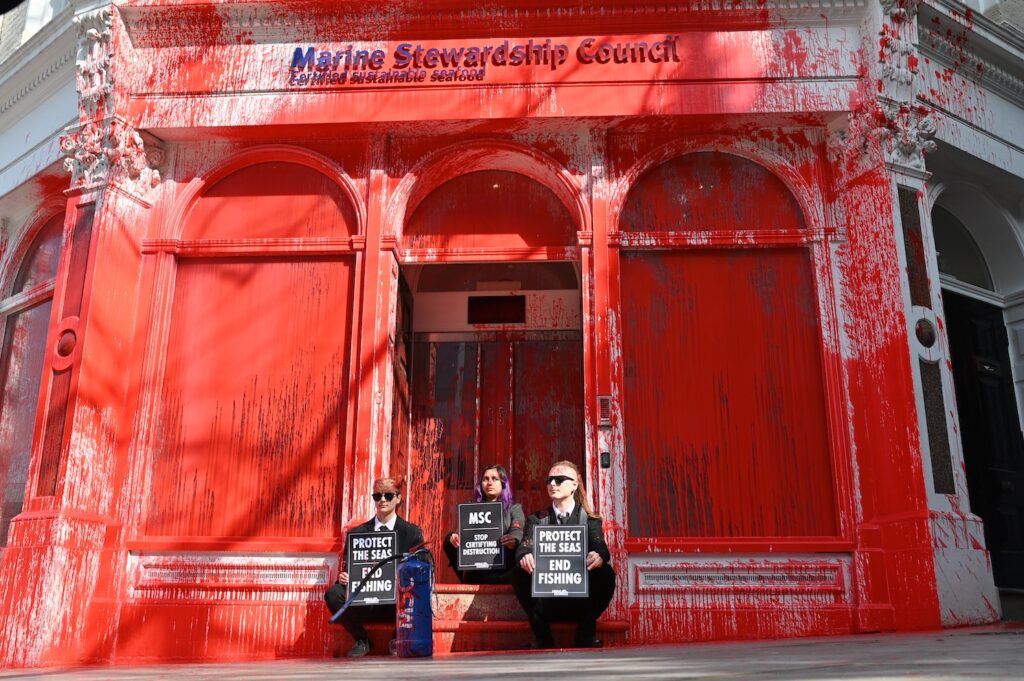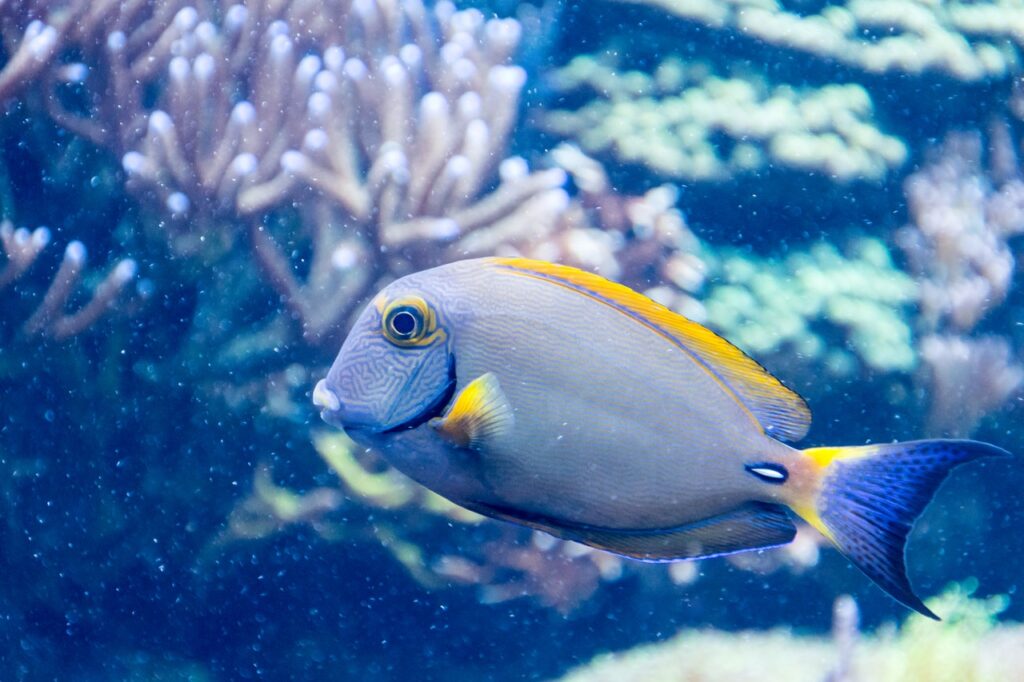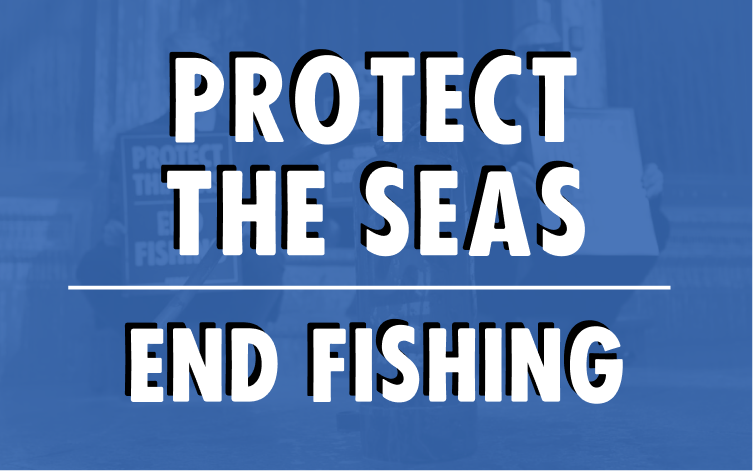When faced with a crisis, making something slightly less bad won’t cut it. There’s making a real difference and then there’s green-wash. The UK-based Marine Stewardship Council (MSC) falls firmly into the latter category.
So what’s wrong? Well, where do you start? The need to transition to a plant-based system to counter the climate crisis applies to the oceans as it does to the land. For 20+ years, the MSC has been propping up and providing a sheen of respectability to the fishing industry. The MSC’s “blue tick” certification label now spans 400+ fisheries, representing around 15% of all global fish landings.
There is plenty of money sloshing around this scheme. Fisheries pay fees of $20,000 to $500,000 for an assessment from Conformity Assessment Bodies (CABs). Indeed, the cost of certification ironically often excludes small-scale fisheries from applying. The MSC also charges retailers royalties of up to 0.5% of the net wholesale value of seafood sold, for using its label. Around 80% (£23.6m) of MSC’s funding comes from licensing income.
It’s not difficult to see a glaring conflict of interest. And there have been plenty of people who have pointed out the flaws in the MSC model. If the nets of MSC-certified fisheries had as many gaping holes as the MSC scheme itself, then no fish would be caught in them at all.

Scores of organisations have highlighted that the MSC’s certification process does not properly account for by-catch, particularly of sharks and cetaceans.
For a long while, MSC allowed vessels to catch both certified and non- certified fish in the same fishing trip, with this only dropped after intense pressure from advocacy group, On the Hook. The 2021 documentary, Seaspiracy, particularly had MSC in its sights and the response by the charity was woeful. The film’s director, Ali Tabrizi, questioned the NGO’s independence owing to its funding and is shown repeatedly failing to secure an interview with MSC to answer the criticisms.
There was a backlash to the documentary from the MSC and other industry interests after it was aired. But Seaspiracy wasn’t making up the criticisms. One contributor to the documentary was Callum Roberts, professor of marine conservation at the University of Exeter. He accused MSC of certifying fisheries that had “astounding levels of by-catch” and said the MSC label was not “worth a damn in some cases”.
The fishing industry hides behind the certification, as do the supermarkets, with consumers duped into thinking there is such a thing as sustainable fishing and that the certification means they are doing the right thing.
The MSC needs to actually take the word in its title – “Stewardship” – seriously. It needs to extract itself from the hopelessly flawed symbiotic relationship with the industry. It must accept that sustainable fishing is a contradiction in terms. And it needs to pivot to supporting a fair and just end to fishing as a vital component of a plant-based food system. Until then, Animal Rebellion will expose its hypocrisy at every opportunity.


